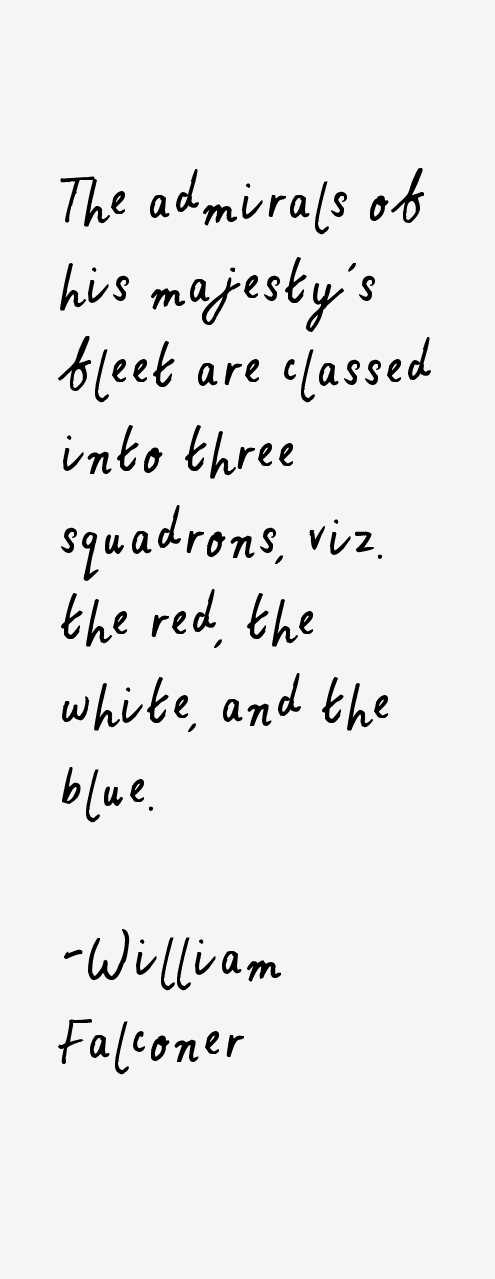William Falconer Quotes & Sayings (Page 2)
William Falconer quotes and sayings page 2 (poet). These are the last 10 out of 20 quotes we have.
“Hence a ship is said to be tight, when her planks are so compact and solid as to prevent the entrance of the water in which she is immersed: and a cask is called tight, when the staves are so close that none of the liquid contained therein can issue through or between them.”
“The fishes are also employed for the same purpose on any yard, which happens to be sprung or fractured. Thus their form, application, and utility are exactly like those of the splinters applied to a broken limb in surgery.”

“The admirals of his majesty's fleet are classed into three squadrons, viz. the red, the white, and the blue.”

“The regular hours necessary to be observed by those who follow country business, are perhaps of more consequence than any of the other articles, however important those may be.”

“Mental agitations and eating cares are more injurious to health, and destructive of life, than is commonly imagined, and could their effects be collected, would make no inconsiderable figure in the bills of mortality.”

“The accumulation of numbers always augments in some measure moral corruptions, and the consequences to health of the various vices incident thereto, are well known.”
“The admiral, or commander in chief of a squadron, being frequently invested with a great charge, on which the fate of a kingdom may depend, ought certainly to be possessed of abilities equal to so important a station and so extensive a command.”

“The anchors now made are contrived so as to sink into the ground as soon as they reach it, and to hold a great strain before they can be loosened or dislodged from their station.”
“In the time of battle the hammocs, together with their bedding, are all firmly corded, and fixed in the nettings on the quarter-deck, or whereever the men are too much exposed to the view or fire of the enemy.”

“Of whatsoever number a fleet of ships of war is composed, it is usually divided into three squadrons; and these, if numerous, are again separated into divisions.”
William Falconer Quotes Rating
No Ratings Yet
Leave A Comment
























